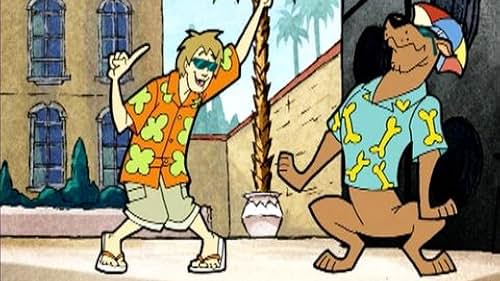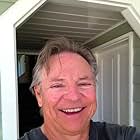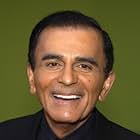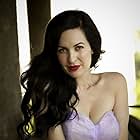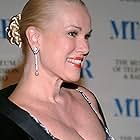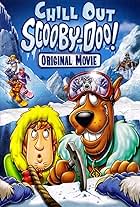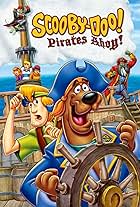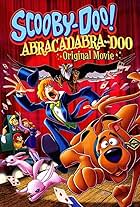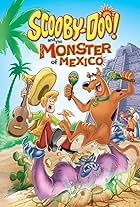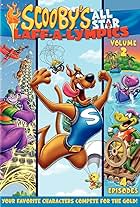IMDb RATING
4.5/10
1.2K
YOUR RATING
Adventures of Mystery, Inc. members Shaggy and Scooby-Doo as they solve various crimes around the world with the help of inherited cash and inventions from Shaggy's uncle.Adventures of Mystery, Inc. members Shaggy and Scooby-Doo as they solve various crimes around the world with the help of inherited cash and inventions from Shaggy's uncle.Adventures of Mystery, Inc. members Shaggy and Scooby-Doo as they solve various crimes around the world with the help of inherited cash and inventions from Shaggy's uncle.
- Awards
- 3 nominations
Browse episodes
Storyline
Did you know
- TriviaThis is the first series that Casey Kasem does not voice Shaggy. However, in this series, he does voice Shaggy's rich and on-the-run uncle Albert.
- ConnectionsFeatured in Troldspejlet: Episode #38.4 (2008)
Featured review
Scooby Doo is undoubtedly one of the most simple, successful and beloved cartoon characters in the world. So, what happens when you've been everywhere and done everything with the formula? You switch it up right? Wrong. You stop production and let it rest for a decade or so and then run it again, keeping the core of its success intact. That is to say, stick with the formula for the most part but add your particular flavour to it. This to me is why "What's New Scooby Doo" worked, they want back to the classic Scooby Doo formula which had only successfully resurfaced a decade earlier in "A Pup Named Scooby Doo" but for the most part had not been tapped since the original "Scooby Doo Where Are You".
The first sign (to me) of a weak offering is the inclusion of extraneous characters; there might be a few fond memories from past iterations but generally if you think "Scooby Doo" you aren't thinking of Film-Flam, Scrappy Doo or Scooby Dum. Even worse, the exclusion of the other core members of "Mystery Inc" generally indicate a group of production people who don't understand from a kids point of view how the show works. The basic premise has always been a group of people who are diametrically opposed getting together and through their own individual, stereotyped qualities manage to surmount the tasks given at hand.
This next paragraph is just my theorizing so skip it if you want: I hope that I can explain why I think fiddling around with the basic elements of the show are detrimental with my interpretation of what the gang represents and how they contribute to the whole; Fred represents the Driver, I think in general it is the purpose of Fred to give the group direction, organization and sub-tasks. Fred isn't a happy-go-lucky teenager, he's your boss, your teacher, your dad, your authority figure. Fred moves without hesitation and is driven by tasks (problem always equals solution for Fred). In many ways Fred is the antithesis to Shaggy. Shaggy is your best friend, that guy who is just a little more afraid of things than you are, he enables you to be brave, to not be at the back of the pack. Shaggy represents emotion and is frequently showing emotional extremes from elation to fear. Velma represents rational thought, she applies logic but as we see time and again on the show she requires clues that for the most part are collected in pieces by the other members of the show. Left on her own would Velma solve a mystery? The group often finds itself in situations where truths aren't obvious and only through chance encounters do they achieve the necessary information to complete their task, chance is represented by Daphne. At one point (I think it is the first Scooby Doo series) she was known as "danger prone". Writers have used Daphne to link unrelated events together through accident. She frequently is the one who finds the secret door, collection of objects or some other detail that can help the gang link clues together. Finally Scooby himself represents us, the participant. He is always in the centre of events, capable of all the things the rest of the gang are capable of, yet handicapped because he is not human and much like us the television viewer is unable to truly participate. Scooby Doo works because all these personified elements of problem solving are immediately identifiable and entertaining.
Maybe I'm over thinking things but, in my life I've seen a lot of Scooby Doo (being a 30 year old self-proclaimed nerd, it kind of rolls with the territory). To me there is a magic with the classic "Scooby Doo" formula that should never be messed with.
As many have pointed out; Scooby Doo is not a great work of art nor is it completely trite, it falls into the category of programming that can be watched by young eyes with a hearty bowl of breakfast cereal. Messing about with the raw simplicity transforms it into something else, something lesser.
The first sign (to me) of a weak offering is the inclusion of extraneous characters; there might be a few fond memories from past iterations but generally if you think "Scooby Doo" you aren't thinking of Film-Flam, Scrappy Doo or Scooby Dum. Even worse, the exclusion of the other core members of "Mystery Inc" generally indicate a group of production people who don't understand from a kids point of view how the show works. The basic premise has always been a group of people who are diametrically opposed getting together and through their own individual, stereotyped qualities manage to surmount the tasks given at hand.
This next paragraph is just my theorizing so skip it if you want: I hope that I can explain why I think fiddling around with the basic elements of the show are detrimental with my interpretation of what the gang represents and how they contribute to the whole; Fred represents the Driver, I think in general it is the purpose of Fred to give the group direction, organization and sub-tasks. Fred isn't a happy-go-lucky teenager, he's your boss, your teacher, your dad, your authority figure. Fred moves without hesitation and is driven by tasks (problem always equals solution for Fred). In many ways Fred is the antithesis to Shaggy. Shaggy is your best friend, that guy who is just a little more afraid of things than you are, he enables you to be brave, to not be at the back of the pack. Shaggy represents emotion and is frequently showing emotional extremes from elation to fear. Velma represents rational thought, she applies logic but as we see time and again on the show she requires clues that for the most part are collected in pieces by the other members of the show. Left on her own would Velma solve a mystery? The group often finds itself in situations where truths aren't obvious and only through chance encounters do they achieve the necessary information to complete their task, chance is represented by Daphne. At one point (I think it is the first Scooby Doo series) she was known as "danger prone". Writers have used Daphne to link unrelated events together through accident. She frequently is the one who finds the secret door, collection of objects or some other detail that can help the gang link clues together. Finally Scooby himself represents us, the participant. He is always in the centre of events, capable of all the things the rest of the gang are capable of, yet handicapped because he is not human and much like us the television viewer is unable to truly participate. Scooby Doo works because all these personified elements of problem solving are immediately identifiable and entertaining.
Maybe I'm over thinking things but, in my life I've seen a lot of Scooby Doo (being a 30 year old self-proclaimed nerd, it kind of rolls with the territory). To me there is a magic with the classic "Scooby Doo" formula that should never be messed with.
As many have pointed out; Scooby Doo is not a great work of art nor is it completely trite, it falls into the category of programming that can be watched by young eyes with a hearty bowl of breakfast cereal. Messing about with the raw simplicity transforms it into something else, something lesser.
- How many seasons does Shaggy & Scooby-Doo Get a Clue! have?Powered by Alexa
Details
- Release date
- Countries of origin
- Official site
- Language
- Also known as
- Shaggy y Scooby-Doo detectives
- Filming locations
- Production company
- See more company credits at IMDbPro
Contribute to this page
Suggest an edit or add missing content


